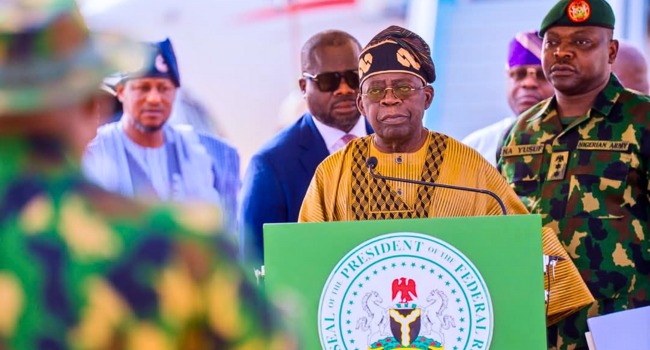When President Bola Tinubu took the oath of office on May 29, 2023, he was confronted with a Nigeria poised between promise and peril, teetering close to the precipice more than at any time in its history. Festering economic imbalances previously masked by oil revenues were drying up, and the failed subsidy regime was squandering away future earnings, foreign exchange realignment had shattered long-standing currency anchors, and inflation eroded the purchasing power of millions of households across the country. Yet, amid the turbulence, the Tinubu administration discerned an opportunity: to marshal the soft power of information, engagement, and transparency as catalysts for a renewed social contract, as contained in the President’s “Renewed Hope Action Plan”. Two years on, the Federal Ministry of Information and National Orientation stands as a pillar of this strategy, its mid-term reports a testament to how institutional reform, disciplined messaging, and citizen dialogue can transform governance from a distant echo chamber into a shared journey to hope and fulfilment.
From the outset, the ministry under the leadership of the minister, Alhaji Mohammed Idris, eschewed the typical aloof officialdom of government establishments. Instead, it embraced a relentless drive to reach Nigerians in all the places they live, work, commute, and engage. Its objectives were clear: to promote national cohesion through strategic engagement with citizens, proactively engage with media practitioners to ensure the accurate dissemination of information and implement periodic citizens and stakeholder engagement to collect feedback, as well as to communicate government activities.
Central to this is the honest acknowledgement of the pressure on everyday Nigerians as we commence on the path to lasting stability. The removal of fuel subsidy and the unification of the exchange rate were seismic shocks nationwide, even as they were long overdue. Yet, as Idris reminded stakeholders at the National Communication Team’s mid-term review, those measures were “the bedrock of our nation’s economic transition or renaissance”. By correctly framing temporary sacrifice as an investment rather than a government imposition, the ministry secured the buy-in from citizens for the government. Nigerians understood the task at hand and saw it as a necessary process to attain a prosperous economy that benefits everybody. The ministry embarked on several town hall sessions, road shows, walks, and various initiatives to sensitise Nigerians on pressing issues. There were sessions in all 36 states of the federation and the Federal Capital Territory that provided much-needed information on the government’s measures to alleviate the pressures. This included the student loan initiative, the CNG vehicle conversion to reduce transport costs, the Digital and Creative Enterprise, the Micro and Small Business Loan, the Skill-Up Artisans Programme, and so much more. These sessions transcended stark recitations of GDP forecasts and fiscal targets, and they painted a picture of the benefits of stabilisation that communities are poised to reap, even as the administration was unafraid to tackle the pain of reform as it mapped its long-term gains.
Mindful of its role in orienting the populace on the activities of the government, the Ministry of Information and National Orientation has been efficient in illustrating the administration’s far-reaching economic reset.
In 2025 alone, the government has committed N2.5tn to road infrastructure — the largest annual allocation in history — linking Lagos to Calabar and Badagry to Sokoto, while resuscitating the Port Harcourt and Warri refineries and reconstructing the Alau Dam in Borno. New ministries for Regional Development and Livestock stand ready to unlock agricultural value chains, and the Presidential CNG Initiative has mobilised over $450m in cleaner‑fuel infrastructure.
Social investments have been equally bold. NELFUND has provided tuition and upkeep support to 300,000 students; CreditCorp has opened access to credit for housing, healthcare and small businesses; and a N200bn stimulus for nano‑businesses, SMEs and manufacturers has injected much‑needed liquidity into the economic engine. These are not just vague statistics; millions of Nigerians have benefited and continue to do so.
However, as no outreach effort is complete without investing in the gatekeepers themselves, the ministry has invested in the custodians of information-Nigeria’s reporters and editors, equipping them to harness artificial intelligence and other emerging technologies in news production. Over the past two years, the Federal Radio Corporation of Nigeria and its network of stations have hosted intensive workshops and training sessions to guide journalists on research, data visualisation, automated transcription and others. By marrying traditional reporting skills with cutting-edge technology, these programmes have accelerated the effective dissemination of government programmes while fortifying the credibility of public broadcasting in today’s fast-paced world.
As the administration completes its first half and faces the second, the ministry’s next objectives are clear: its next steps must be defined not only by what it has achieved but also by a vision of what more needs to be done. The ministry’s vision- to build a dynamic and participatory public information system that champions national unity, growth, and development- provides a clear compass.
It must create a thriving ecosystem of trust, civic education, and national pride. This push must thus go further in converting the President’s mandate into sustained national consciousness.
It also means scaling civic enlightenment campaigns with greater urgency. The fight against intolerance, corruption, cultism, and anti-social behaviour cannot be fought in silos or with slogans alone. It must be conveyed through values-based storytelling, participatory education, and localised cultural engagement that speaks to the realities of Nigerians, young and old.
Ultimately, the true measure of the achievements attained by the ministry at the mid-term of President Tinubu’s tenure will not reside in annual reports, but in the lived experiences of Nigerians. When an elderly retiree makes sense of government initiatives, when a student understands her obligation as a citizen, or when a trader sees the potential of buying Nigerian goods, then the ministry would have succeeded in its set goals. If citizens feel informed and empowered, the Ministry of Information and National Orientation will have achieved its most important goal, which is to convert the ideals of Mr President’s “Renewed Hope” into a shared reality that Nigerians can feel and touch. Thus, the takeaway is that the stewardship of hope demands the same diligence in communication as it does in the formulation of impactful policy.
Two years on, Idris and the Ministry of Information and National Orientation have proven to be more than a mere mouthpiece for policy announcements; it is the engine room of the administration’s social contract by empowering citizens at the grassroots to know and embedding transparency into the institutions that shape national life. The “Renewed Hope” Agenda has laid the groundwork. What comes next is the building of a nation that hears itself, sees itself, and speaks to itself more clearly, more honestly, and more often.

